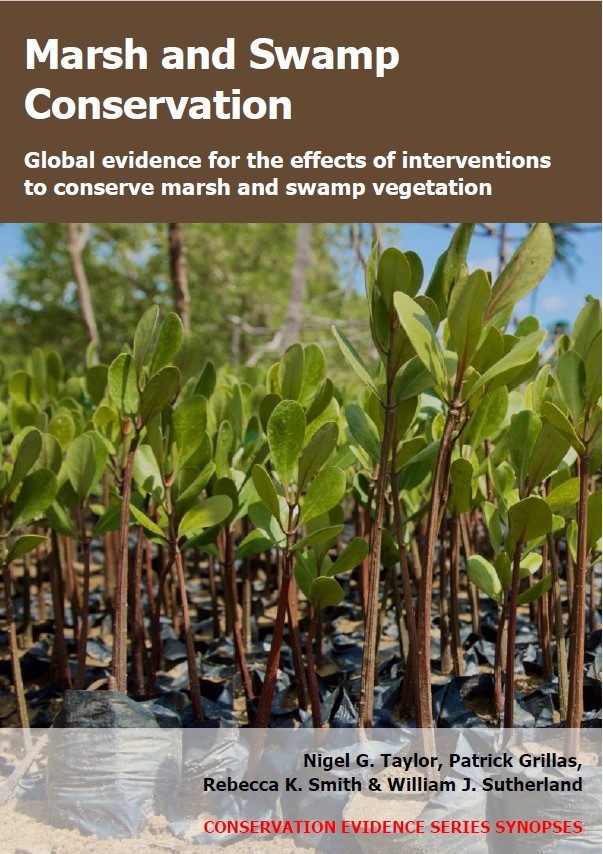Background information and definitions
Oil spills can damage vegetation in swamps. Lighter oils can kill plants through their toxic effects, whilst heavier oils coat and smother vegetation (Michel & Rutherford 2013). Coastal sites are vulnerable to offshore tanker spillages. For example, an estimated 5.5 million tonnes of oil has been released into mangrove-lined coastal waters around the world since 1958, killing at least 126,000 ha of mangrove vegetation (Duke 2016). Oil pipelines crossing inland wetlands (e.g. the Russia-China Oil Pipeline; Yu et al. 2010) pose a threat from leaks and malfunctions. Loss of vegetation can increase the risk of erosion and permanent habitat loss (Beland et al. 2017; https://youtu.be/UkATPicHIo4).
This action involves cutting or burning above-ground plant parts from oil-contaminated swamps. This may increase oxygen supply to the root zone (oil smothering leaves may interfere with oxygen diffusion) and prevent complete death of the oiled plants (Zengel & Michel 1996).
Caution: Activity on the wetland surface (e.g. foot traffic) could churn oil further into the sediment. Removing above-ground vegetation could increase rates of erosion. Hoff & Michel (2014) suggest that live mangrove vegetation should never be cut or burned, as the forest structure would take a long time to recover.
Related actions: Use artificial barriers to block pollution; Physically or chemically remove oil; Stimulate microbial breakdown of oil.
Beland M., Biggs T.W., Roberts D.A., Peterson S.H., Kokaly R.F. & Piazza S. (2017) Oiling accelerates loss of salt marshes, southeastern Louisiana. PLoS ONE, 12, e0181197.
Hoff R, & Michel J. (2014) Oil Spills in Mangroves: Planning & Response Considerations. US Department of Commerce.
Michel J. & Rutherford N. (2013) Oil Spills in Marshes: Planning & Response Considerations. US Department of Commerce.
Michel J. & Rutherford N. (2014) Impacts, recovery rates and treatment options for spilled oil in marshes. Marine Pollution Bulletin, 82, 19–25.
Yu X., Wang G., Zou Y., Wang Q., Zhao H. & Lu X. (2010) Effects of pipeline construction on wetland ecosystems: Russia-China Oil Pipeline Project (Mohe-Daqing Section). Ambio, 39, 447–450.
Zengel S.A. & Michel J. (1996) Vegetation cutting as a clean-up method for salt and brackish marshes impacted by oil spills: a review and case history of the effects on plant recovery. Marine Pollution Bulletin, 32, 876–885.






)_2023.JPG)














